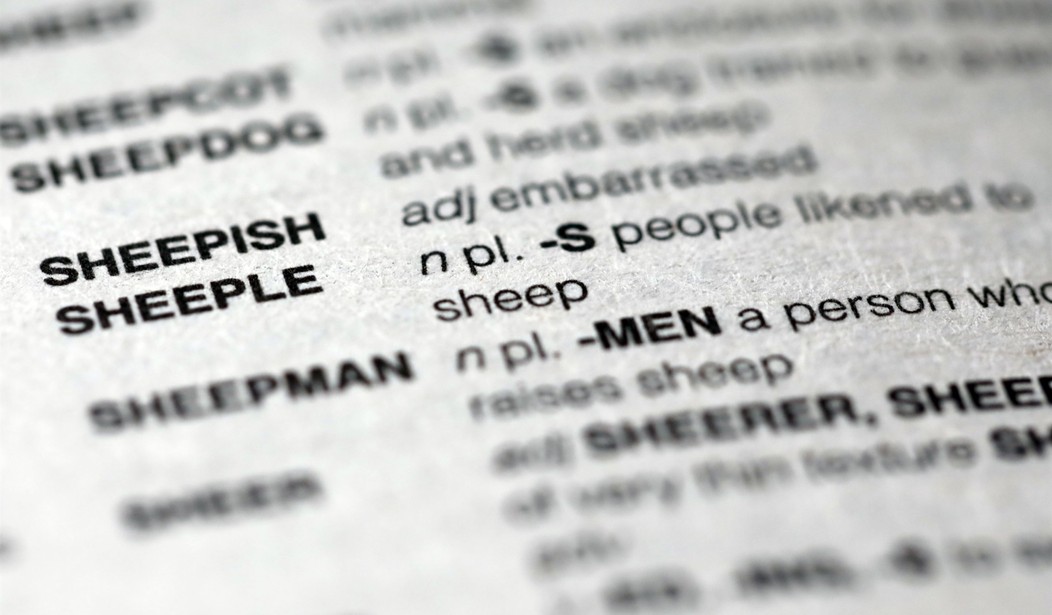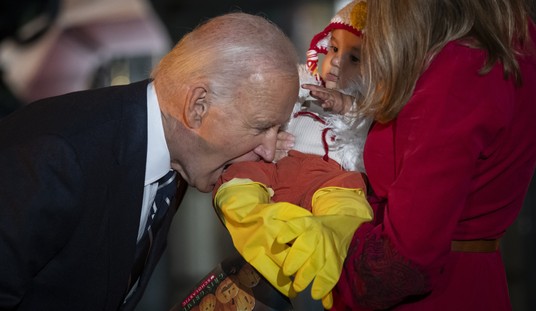There was a telling development this week seen from the lecturing, hectoring sect of the journalism industry, as the abortion debate flared anew. There was a notable departure from the linguistic standard foisted on us for the better part of the past year. See if you can spot it, in this example from Rachel Maddow.
"It would fundamentally change us as a country. It would fundamentally change the relationship between women and the government. It would fundamentally change the future for… all our daughters and granddaughters, and women that come after us." –@Maddow pic.twitter.com/kgfGDq0HXf
— Brian Stelter (@brianstelter) May 3, 2022
It was in a rather quick fashion that those who are ardently worried about being inclusive and try forcing people to use terms like ‘’birthing individual’’ were able to dispatch that glossarial requirement the moment abortion was shown to be threatened. Just like that, “women” became an acceptable term once again, because the right to take the life of an unborn child is far more important than inclusiveness and societal engineering.
These kinds of missteps are bound to arise when you see the high level of emotional reactions this subject evokes from those on the left (Here, Senator Warren – have a Snickers bar.) Now, just as women had apparently regained their agency, a sign of the verbal paradox that some are facing has arisen. The Associated Press has come out with an update to its vaunted Style Guide, showing that the struggle is rather evident.
New AP style guidance alert: pic.twitter.com/bCYr8KExr2
— Kimberlee Kruesi (@kkruesi) May 4, 2022
And thus, they have pulled the pin on the hand grenade while walking through a minefield. In order to adhere to the social standards they believe in, the press is now in a position of undercutting their narrative in one way or another. Either they are wailing over the loss of women’s rights and therefore become exclusionary, or they need to alter their phrasing by using the less-catchy term like “violating the birthing person’s right to healthcare.”
So either ‘’pregnant people’’ is fine in a general topic discussion, or “women” is acceptable when talking specifically about abortion rights because that is who is specifically being targeted by the evil GOP legislation, though you need to be pregnant first in order to get an abortion, and yet you can still be a woman without being pregnant. Then things are even more fluid when you have “birthing person” on the table because that term does not really work in a discussion about terminating the birth.
Frankly, this is as tiresome as it gets and becomes yet another reason why I have nothing but disdain over the AP Style Book. It was during the height of the Black Lives Matter riots that the AP came out with a revision, indicating that it would be proper going forward to capitalize the first letter in an ethnic race – only not all of them. It would be proper, according to them, to use the word “Black,” for various reasons, but you must continue to go with “white,” for deeply non-linguistic reasons.
The rationale at that time was one should capitalize “Black” due to ‘’the need to be inclusive and respectful,’’ but then the next month, announcing the “white” race should remain uncapitalized was a clear act of not being inclusive. Then, while clarifying, the editors said ”The lowercase black is a color, not a person.” Except, lower case ”white’’ would refer to a person, so their intent on being respectful was also evaded.
This is the kind of ridiculous realm they manage to wander into when the focus is on activism and virtue signaling, rather than the actual language. They worry more about being seen as being proper than about being accurate. In doing so they inspire comments and columns such as this one, and as a result, they end up in the position of the reporter Kimberlee Kruesi – after raising the topic of language, they would rather not talk about it.
Well. Time to mute this.
— Kimberlee Kruesi (@kkruesi) May 5, 2022













Join the conversation as a VIP Member